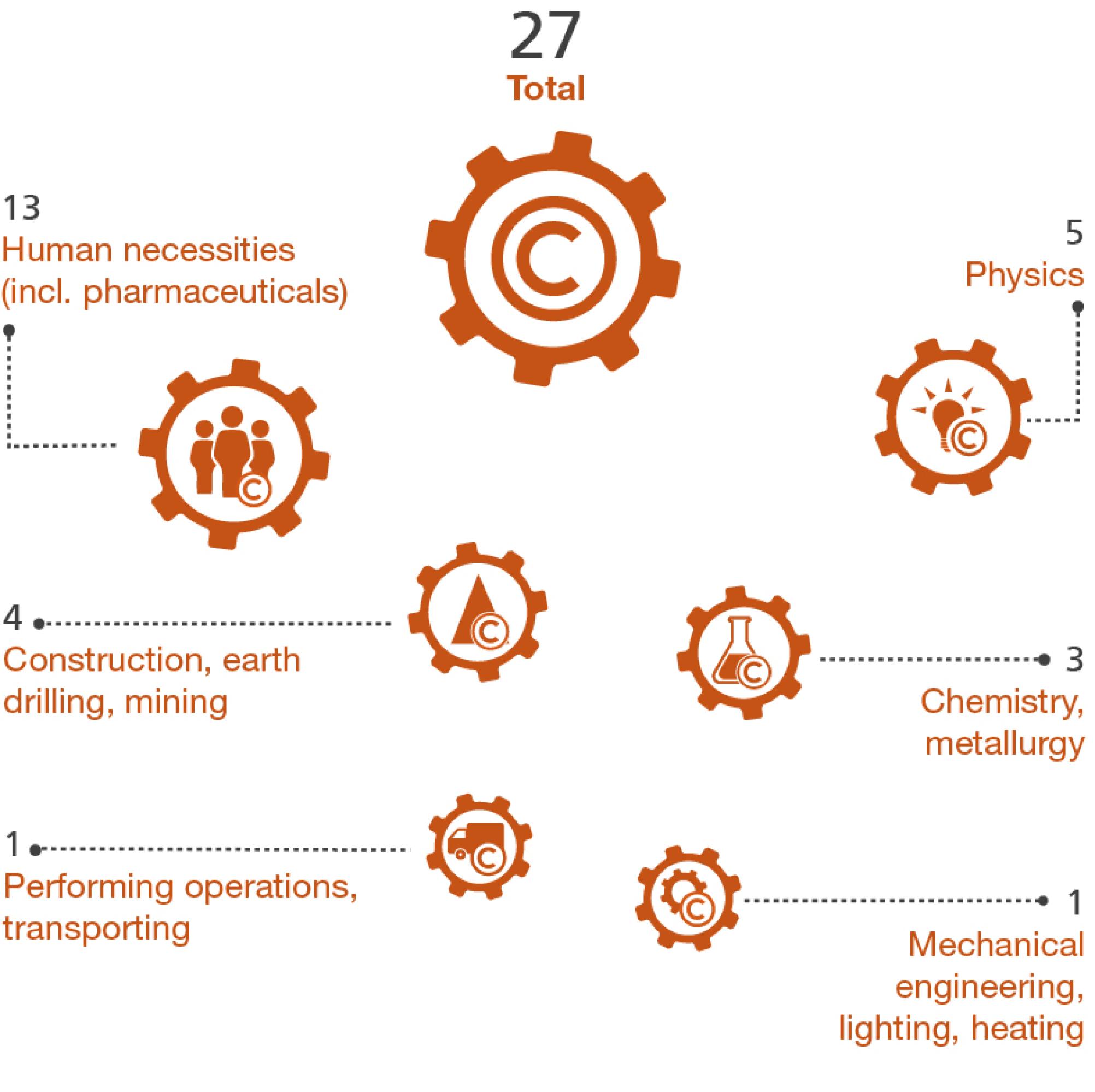Federal Patent Court
The Federal Patent Court decides on disputes relating to patents. The smallest of the federal courts, it regularly deals with international parties. If the parties agree, pleadings and briefs can be in English.
Functions
Developing a technical idea usually costs a lot of money. With a patent, the ‘intellectual property’ of an invention is legally protected. In the event of a dispute, the Federal Patent Court decides whether a new technical development meets the requirements for patent protection; it also assesses whether existing patent rights are being infringed. It must also decide who is the legal holder of a patent or how a patent may be used in the context of licensing.
Until 2012, the cantonal courts had jurisdiction in matters relating to patent disputes. Since then, these cases have been a matter for the Federal Patent Court. Its judgments may be appealed to the Federal Supreme Court.
Organisation
The Federal Patent Court is the smallest federal court. It is not split into different divisions. 41 non-permanent judges work for the court but they do not have their own offices in the court. The president of the Federal Patent Court, another judge, two court clerks and two office staff members work for the Federal Patent Court on a permanent basis.
The seat of the Federal Patent Court is in St. Gallen. It does not have its own courtroom. If court hearings take place, they are held in the building of the nearby Federal Administrative Court. The Federal Patent Court can also hear cases in the cantons, e.g. in Neuchâtel, if the parties come from French-speaking Switzerland.
President: Mark Schweizer
Cases by technical field received in 2021

Particularities
English is also permitted as a language
International parties frequently appear before the Federal Patent Court; English is also often used in the field of technology. The parties to the dispute may therefore also conduct proceedings in English if everyone agrees.
Judges with technical expertise
The Federal Patent Court regularly deals with complex technical issues in its proceedings. Judges with appropriate technical expertise are therefore involved, enabling fast and cost-effective proceedings, as time-consuming and costly opinions from external experts can usually be avoided.